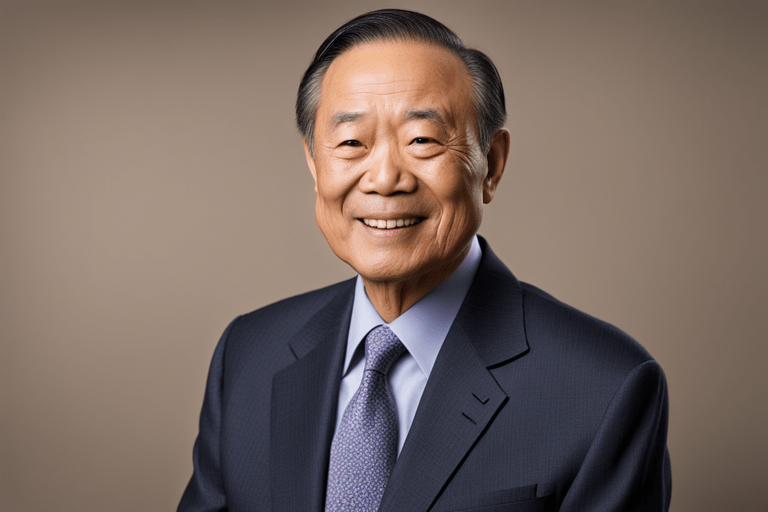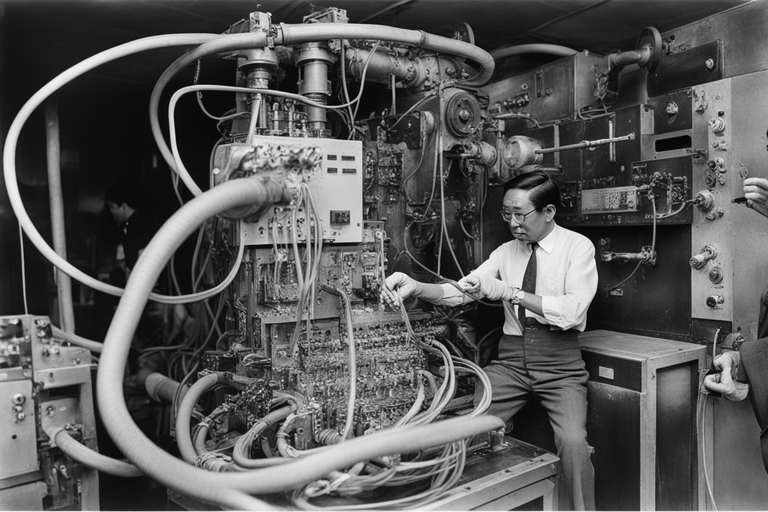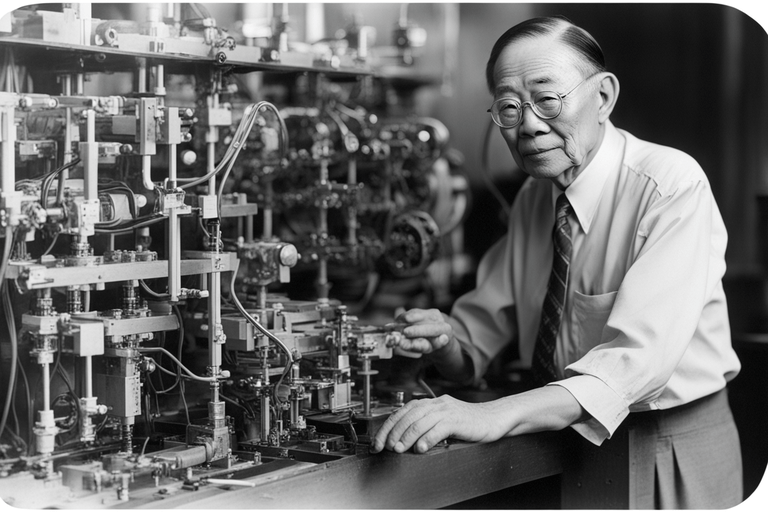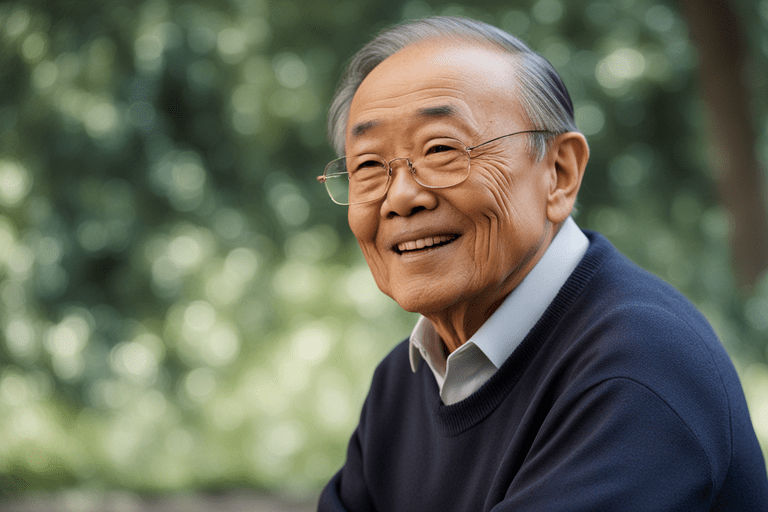Charles K. Kao, a trailblazer in the field of telecommunications and the father of fiber optics, left an indelible mark on the world with his groundbreaking work. Beyond his significant contributions to science and technology, there are several intriguing aspects of his life that add layers to the legacy of this brilliant mind.

In the realm of technological brilliance, Charles K. Kao stands as a luminary whose contributions resonate globally. Originating from Shanghai, Kao’s journey unfolded with a profound impact on communication technologies.
Transitioning to the United States, his innovations took root in the fertile soil of American academia. Kao’s pursuit of knowledge burgeoned at the University of London, culminating in a groundbreaking discovery that would shape the future of fiber optics.
As we unravel the layers of Charles K. Kao’s legacy, a mosaic of achievements comes to light. His pioneering work, recognized with the Nobel Prize, not only transformed how we communicate but also left an indelible mark on the landscape of American technological advancement.
Charles K. Kao: Pioneering Fiber-Optics, Philanthropy, and a Legacy of Innovation
Early Life and Education
- Born on November 4, 1933, in Shanghai, China.
- Earned a bachelor’s degree in electrical engineering from the University of London in 1957.
Career Highlights
- Started career with Standard Telephones and Cables, a British subsidiary of ITT.
- Received a doctorate in electrical engineering in 1965.
Fiber-Optic Revolution

- Proposed ultra-pure glass fibers for long-distance light transmission in 1966.
- First practical fiber-optic cable produced by 1970, transforming global telecommunications.
Varied Career Path
- Worked at the Chinese University of Hong Kong and rejoined ITT in different roles.
- Served as vice-chancellor and president at the Chinese University of Hong Kong (1987–1996).
Entrepreneurial Ventures
- Chairman and CEO of Transtech (1996–2001) and ITX Services in 2000.
Legacy and Recognition
- Places named in his honor.
- Co-founder of an Alzheimer’s Disease Foundation.
Philanthropy and Nobel Prize
- Co-founded an Alzheimer’s Disease Foundation.
- Nobel Prize contributions aided in covering medical expenses.
Education and Personal Journey
- Homeschooled until age 10, influencing his approach to learning.
- Diagnosed with Alzheimer’s in 2004; founded the Charles K. Kao Foundation for Alzheimer’s Disease Limited in 2010.
Also Read this: 19 Interesting Facts About Tennessee Williams
Lesser Know insights into Charles K. Kao
Kao Was Home-schooled Until He Was 10 Years
Early Beginnings and Education
Charles K. Kao, born on November 4, 1933, in Shanghai, China, experienced a unique childhood marked by tragedy and resilience. Home-schooled until the age of 10, Kao’s upbringing was deeply influenced by the loss of his two elder siblings to a measles outbreak. His parents, Kao Chun-Hsiang and King Tsing Fong, sought solace in pampering and protection, with nursemaids ensuring a watchful eye over him and his younger brother.
Transitioning to formal education at the age of 10, Kao’s academic journey began, setting the stage for the brilliance that would later redefine communication technologies.
Also Read this: 20 Surprising Facts About George Washington
He Married an Engineer
A Love Story and Professional Partnership
Charles K. Kao’s personal life took a romantic turn when he met Gwen May-Wan Kao, a British-Chinese engineer, in London after his graduation. Their professional collaboration at Standard Telephones and Cables blossomed into a lifelong companionship. In 1959, they married in London, welcoming two children into their family. Kao’s wife, Gwen, remained his constant companion until his passing, their union marked by shared professional pursuits and religious differences.
He Came From a Learned Family Lineage
A Legacy of Literature and Law
Charles K. Kao’s intellectual lineage is deeply rooted in a family of scholars and literary figures. From his grandfather’s prowess in Chinese calligraphy and leadership during the late Qing Dynasty to his father’s achievements as a lawyer and Chinese judge, Kao’s familial background shaped his early exposure to Chinese classics and international education in Shanghai.
Beyond the Kao family, his wife Gwen and younger brother Timothy continued the legacy of academic and engineering excellence, creating a tapestry of intellectual achievement that extended through generations.
Also Read this: 20 Fascinating Facts Unveiling the Legacy of Thomas Jefferson
Kao is the Father of Fiber Optics

Pioneering Innovation in Communication
Before becoming the “Father of Fiber Optics,” Charles K. Kao pursued Electrical Engineering in Taiwan and later joined the research center of Standard Telephones and Cables in Harlow, London. In the 1960s, he confronted the challenge of light loss in glass fibers, presenting a groundbreaking solution in 1966. By creating pure glass fibers and utilizing laser technology, Kao laid the foundation for modern internet communication, earning him the titles of the “godfather of broadband” and the “father of fiber optics communication.”
His Nobel Prize Paid for His Medical Expenses
A Nobel Laureate’s Battle with Alzheimer’s
Charles K. Kao’s later years were marked by a diagnosis of Alzheimer’s disease. After being awarded the Nobel Prize, the prize money was redirected towards his medical expenses, showcasing a unique and compassionate use of the prestigious accolade. This act reflected Kao’s commitment to facing his health challenges with dignity and grace.
He Won Multiple Awards
A Trail of Honors
Beyond the Nobel Prize, Charles K. Kao’s contributions earned him multiple awards and recognitions. Knighted by Queen Elizabeth II in 2010, he received the Faraday Medal, the Alexander Graham Bell Medal, and the Marconi Medal in the 1980s. Hong Kong commemorated him with a stamp, affirming his status as a luminary in the field of fiber-optic communications.
There are Places Named in His Honor
Legacy in Architecture
Charles K. Kao’s impact extends beyond technology to the architectural landscape. Places like the Charles Kuen Kao Building at the Chinese University of Hong Kong and the Charles K. Kao Foundation for Alzheimer’s Disease stand as monuments to his influence. Landmarks such as the Hong Kong Science Park Auditorium and Professor Charles Kao Square pay homage to his enduring legacy.
He Has Attained Several Honorary Degrees
Recognized by Leading Institutions
Charles K. Kao’s intellectual prowess garnered him numerous honorary degrees from esteemed institutions globally. Recognized as a Doctor of Science by Yale University, Princeton University, and others, his influence reached across borders. Titles such as Honorary Professor, Academician, and Doctor of Engineering adorned his distinguished career.
He Co-founded an Alzheimer’s Disease Foundation
A Commitment to Alzheimer’s Awareness
In 2010, Charles K. Kao and his wife, Gwen, co-founded the Charles K. Kao Foundation for Alzheimer’s Disease. This non-profit organization focuses on raising awareness, educating the public on brain health care, and providing support for Alzheimer’s patients, their families, and caregivers. It stands as a testament to their commitment to making a difference beyond the realm of technology.
He Died at 84 Years
A Life Remembered

Charles K. Kao faced the challenges of Alzheimer’s with courage and dignity. Struggling with the later stages of dementia, he chose not to be kept alive with life support or undergo CPR. On September 23, 2018, at the age of 84, Charles K. Kao passed away at Bradbury Hospice in Hong Kong, leaving behind a legacy that transcends technological brilliance—a legacy of compassion, innovation, and enduring influence.
FAQs
A: Charles K. Kao is renowned as a pioneer in the development of fiber-optic technology, transforming global telecommunications.
A: Kao proposed the concept of using ultra-pure glass fibers for long-distance light transmission, leading to the creation of the first practical fiber-optic cable by 1970.
A: Kao co-founded an Alzheimer’s Disease Foundation and established the Charles K. Kao Foundation for Alzheimer’s Disease Limited, showcasing his commitment to healthcare causes.
A: Kao served as vice-chancellor and president at the Chinese University of Hong Kong from 1987 to 1996.
A: Homeschooled until the age of 10, Kao’s unique approach to learning contributed to his innovative thinking and problem-solving skills in his later career.